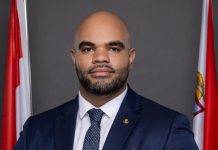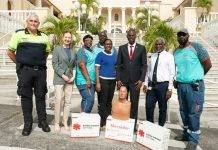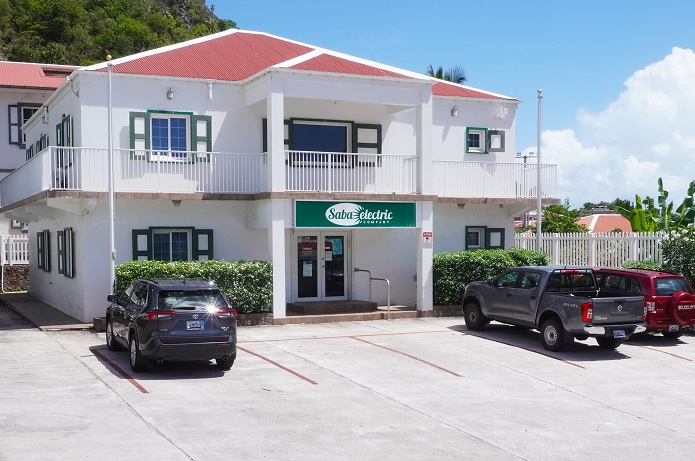SABA — Consumers on Saba who received their July electricity consumption bills were able to note that even though their bill did go up, the increase was mitigated due to a subsidy provided by the Public Entity Saba.
Consumers in cycle 1, The Bottom and St. John’s, and consumers in cycle 2, Windwardside and Zion’s Hill, recently received their July electricity consumption bill. Thanks to a subsidy of the Public Entity Saba to the Saba Electric Company (SEC), the rate has been set at 0.4502 USD/KWH which is a 10% increase instead of the 26.924% raise that was set by the Authority for Consumers and Markets (ACM). Subsidized assets which include the relocation of the power plant and solar parks are not factored in the tariffs.
Special subsidy
The Public Entity Saba recently decided to grant a special subsidy to SEC to aid consumers with the variable tariff increase for the period of July to December 2022 so the increase of electricity bills would remain limited to 10%. This is the third time that the Public Entity Saba has come to the aid of SEC’s consumers during the challenging period of rising prices.
The first subsidy covered the period July-December 2021 which helped to limit the increase of the variable fee. For 2022, the Public Entity granted a subsidy for the fixed fees, which reduced the fee to zero for every KVA (kilovolt-ampere) category. The latter subsidy was an addition to the subsidy that the Dutch Government provided to the Caribbean Netherlands to mitigate the increase in fuel prices. Through a subsidy of the Public Entity Saba, the fixed fee increase was further reduced to zero.
Combination of subsidies
To recap: the fixed fees for 2022 were reduced to zero with a combination of three subsidies. The first is the distribution subsidy provided by the Ministry of Economic Affairs and Climate (EZK) that on a yearly basis calculates the difference between the fixed fee for a standard connection in the Netherlands compared to a standard connection on Saba. The second subsidy concerns a special subsidy for the rising fuel prices approved by the Second Chamber of the Dutch Parliament. The Public Entity Saba, through a subsidy, covered the balance that the two subsidies from the Netherlands did not cover.
Reduce cost
SEC is continuously striving to reduce cost that dictate the tariffs. SEC has received sizeable annual subsidies from the Ministry of Economic Affairs and Climate (EZK) to reduce the distribution tariffs charged to customers comparable to a standard connection in the Netherlands.
Furthermore, all major investments have been subsidized to increase resilience, and decrease the dependence on fossil fuels. An example of these investments is the construction of the solar parks next to the airport and the relocation of the power plant. SEC keeps striving to expand its share in renewable energy sources in the near future in order to reduce dependency on the volatile price of fuel.































